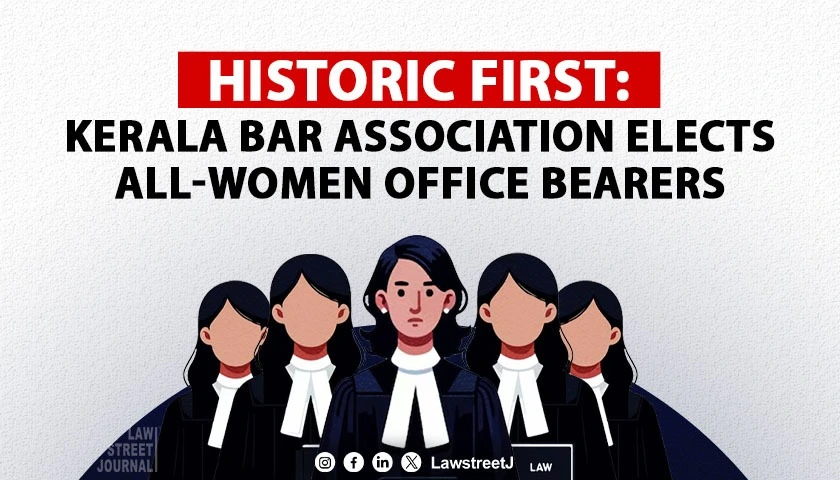Kerala: In a groundbreaking development, the Pala Bar Association in Kerala has elected an all-women panel to lead its office and executive committee — a historic first that signals a major leap toward gender inclusivity in the legal profession.
The elections, which filled 15 key positions, come at a time when there is mounting pressure across the country for enhanced women’s representation in bar associations. Notably, the Supreme Court had last year mandated a minimum one-third reservation for women in bar association posts, a directive extended to several prestigious bodies like the Delhi High Court Bar Association and the Karnataka Bar Association.
Against this backdrop, Pala Bar Association’s move to elect a completely women-led executive not only fulfills but exceeds these requirements, setting a powerful precedent.
Leading the panel is Advocate Usha Menon, who decisively won the election for the post of President with 163 votes, defeating her opponent, Advocate Josekutty Kuzhithottam, who secured only 70 votes.
The newly elected office bearers are:
- President: Usha Menon Ushus
- Vice-President: Minimol Cyriac Valiyaveettil
- Secretary: Remya R Kakkanattu Ozhukayil
- Joint Secretary: Prejisha Jose Vathalloor
- Treasurer: Nisha Nirmala George Puthenpurackal
The Executive Committee is also entirely women-led, with appointments including Asha Ravi Mulanjanikkunnel as the Lady Representative, Deepa N. G. Njundanmakkal and Irine Elisabeth B Moothasseril representing Juniors, and Gayathri Raveendran Vandannoor, Maggi Balaram Ezhervayalil, Manjusha K. G. Vadayattu, Remya Rose George Perekkattu, Sanju P. S. Sreenilayam, Solimol Sebastian Eruvelikkunnel, and Tinu Scaria Pandiyammackal among the senior members.
The development has been widely hailed as a moment of pride not just for Kerala but for the entire legal fraternity, especially at a time when conversations around women’s leadership in law are gaining momentum nationwide.
The Pala Bar Association’s decision sends a strong message — that true leadership and merit transcend traditional gender biases, and the future of the Indian bar must be inclusive, representative, and forward-looking.








![Kerala HC Quashes 498A Dowry Harassment Case Against Live-In Partner, Citing Lack of Relative Status [Read Order]](/secure/uploads/2023/08/lj_5693_1057c042-1e57-4e27-8c9e-25af0ec38ec4.jpg)
![Watching porn on mobile: Kerala HC highlights importance of mother cooked meals, outdoor sports [Read Order]](/secure/uploads/2023/09/lj_9155_Parental_supervision_of_mobile_phone_usage.jpg)
![Lakshadweep MP Mohammed Faizal Disqualified from Lok Sabha After Conviction Suspension Plea Rejected by Kerala High Court [Read Notice]](/secure/uploads/2023/10/lj_9640_87b5fd97-0e05-4ff8-9a99-3be1e4446192.jpg)




